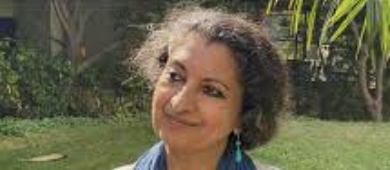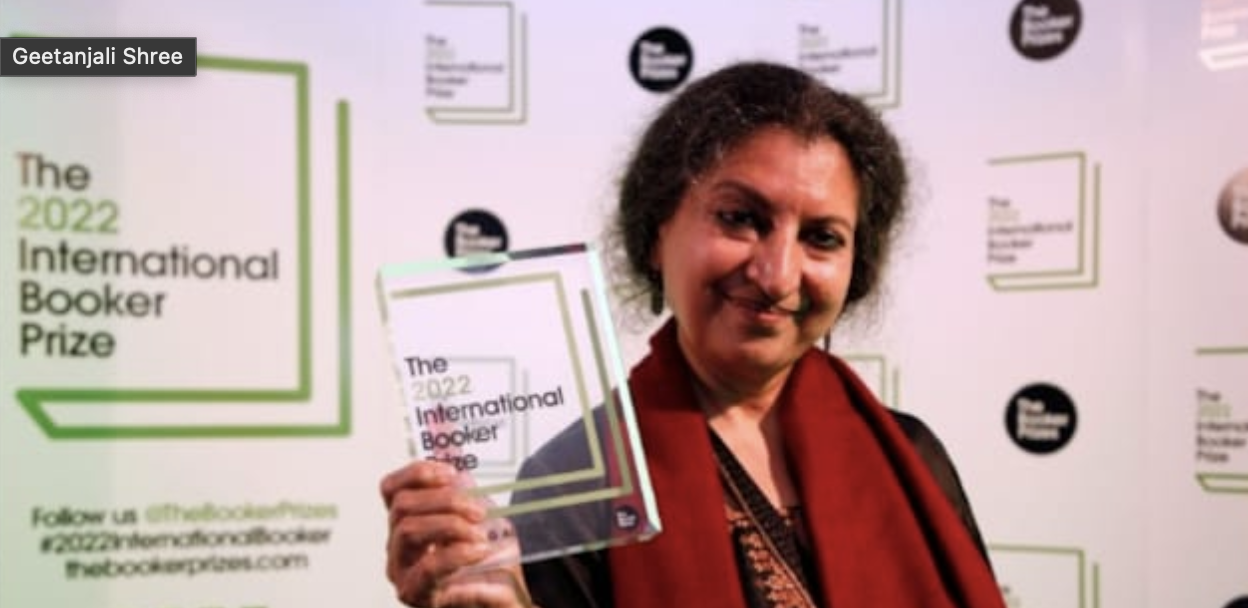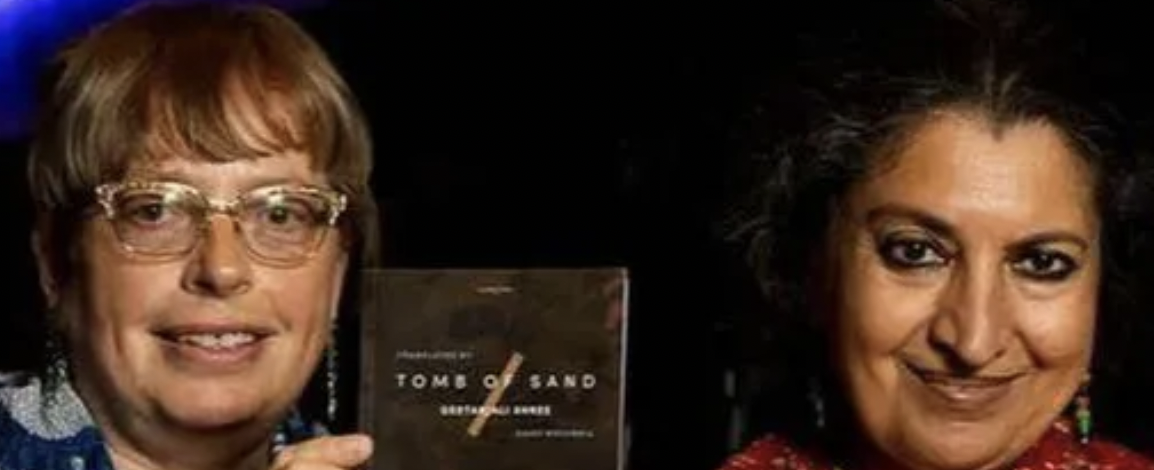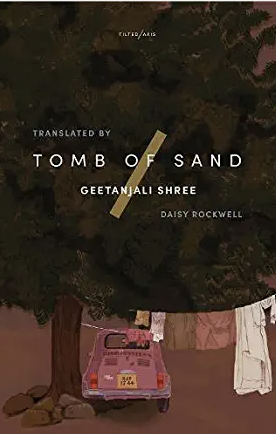
Power of Recommendations and definition of Border




Geetanjali Shree ( Geetanjali Pandey) was born in Manipuri Uttarpradesh, India, and her translator, Daisy Rockwell, the author of Tomb of Sand which scooped this year’s International Booker Prize the first time a work in Hindi had ever won, then one of India’s biggest dairy brands accorded them the highest accolade, a cartoon rendition of them as cheery mascots sculpted in butter and displayed on billboards across the country. Tomb of Sand bet 135 books, six other shortlisted books including Cursed Bunny by Bora Chung, Translated by Anton Hur from Korean, A New name: Septology VI-VII by Jon Fosse, translated by Damion Searls from Norwegian, Heaven by Mieko Kawakami, translated by Samuel Bett and David Boyd from Japanese, Elena Knows by Claudia Pieiro translated by Frances Riddle from Spanish, and The Books of Jacob by Olga Tokarczuk, translated by Jennifer Croft from Polish.
Tomb of Sand is about an eighty-year-old woman who slips into a deep depression at the death of her husband, then resurfaces to gain a new lease on life. Her determination to fly in the face of the convention including striking up a friendship with a Hijra ( Transgender) woman confuses her bohemian daughter, who is used to thinking of herself as the more \x27 modern\x27 of the two. At the old woman\x27s insistence they travel back to Pakistan, simultaneously confronting the unresolved trauma of her teenage experiences of Partition, a re-evaluating what it means to be a mother, a daughter, a woman, a feminist. Geetanjali Shree’s playful tone and exuberant wordplay results in a book that is engaging, funny, and original, at a time of protest against the destructive impact of borders and boundaries, whether between religions, countries, or genders.
Partition is one of the most tragic events in the modern history of the subcontinent, Shree’s storytelling in which listeners and readers know what is to come but are drawn into the story.
“Two women one death, How nicely we’ll get on, us and them, once we sit down together” as a chorus of voices compete to tell the story – instead of a conventional plot, the novel reveals family secrets through a series of digressions, even the doors, the walls, the birds and crows join in at different points.
Chandraprabha referred to as Badi Ammi, is flat on her back reacting to her husband’s death by refusing to get up. The family the eldest son Bade, his wife Bahu, the Overseas son the Serious Son, a favourite grandson, and her daughter Beti spins around her a humming web of love and inevitable discord, each one trying to overcome the old lady’s determined refusal to stir.
“ A path opens with no. Freedom is made of no. No is fun. No is nonsensical. Nonsensical, but also mystical”.
Mother and daughter spin off into their own world, first to the daughter’s home and then to the Pakistan border and beyond. “Daughters are made of wind and air,” Shree writes.
Once women are unleashed there is often no turning back. Two are the center of this story: Beti who annoys her family by leading an unconventional life that is not only independent but also sins of sins, successful, and the old woman whose butterfly-painted cane will lead her out of her home and across a succession of borders. Rosie Bua, a transgender Hijra who has visited Badi Ammi for years, calling her sister, the origins of their friendship shrouded in mystery.
Tomb of Sand came out originally in Hindi as Ret – Samadhi (2018) many assumed that it was impossible to translate, but Rockwell weaves magic and brings out true to original but its own creation.
“ Do you know what a border is? It surrounds an existence, it is a person’s perimeter.”
In English Tomb of Sand is almost twice the length of the original 376-page novel. Rockwell’s idea of keeping some Hindi words for food bharbhara, makuni, tikkar, guramma, or family relationships, she mirrors Shree’s original text.
The tale takes us across the border, back into a still-bleeding wound of the partition that cleaved India and Pakistan upon independence from Britain in 1947, with many forced to abandon homes and loved ones, friends, and the scent of their own trees and earth.
Tomb of Sand is a triumph of literature and solace to anyone whose life has been scarred by a border that became a forbidden wall.
Tomb of Sand by Geetanjali Shree, translated by Daisy Rockwell, Tilted Axis Press £12, 739 pages.
